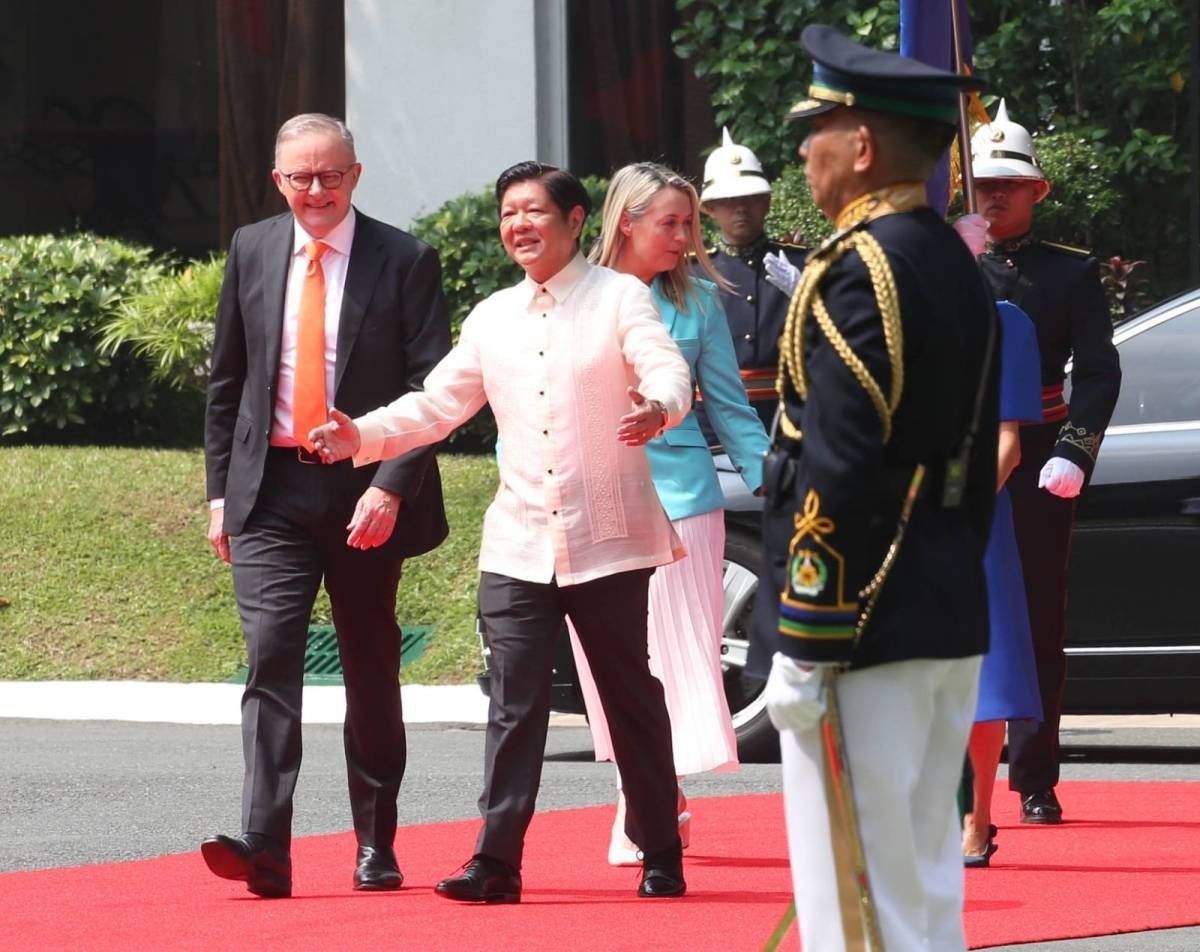Australia, Philippines Commit to Strategic Partnership
Australia and the Philippines agreed to elevate their ties to a strategic partnership amid tensions in the Asia Pacific region.
Australian Prime Minister Anthony Albanese and Philippine President Bongbong Marcos inked several agreements and a joint declaration during their first-ever bilateral meeting in Manila.
Australia and the Philippines have maintained a stable and cooperative political and economic relationship over the years. Their interactions have been largely influenced by their participation in regional forums and alliances within the Oceanic and Southeast Asian spheres of influence.
Both countries share concerns about regional security challenges, such as territorial disputes and the need to combat piracy and terrorism. Elevating their relationship allows for deeper security cooperation and intelligence-sharing.
The existing trade relationship has been mutually beneficial, but both nations see room for growth. By transitioning to a Strategic Partnership, they aim to further enhance economic integration, remove trade barriers, and promote investment opportunities.
The Australia-Philippines Strategic Partnership holds great potential for economic co-prosperity, especially in terms of Filipino businesses benefiting from importing agricultural and aquamarine products from Australia and Australian suppliers:
1. Enhanced Trade: The partnership aims to reduce trade barriers, making it easier for Filipino businesses to import agricultural and aquamarine products from Australia. This means a wider variety of high-quality products can enter the Filipino market at competitive prices.
2. Quality Assurance: Australian agricultural and aquamarine products are known for their high quality and safety standards. Filipino businesses can benefit from importing these products as they meet the stringent requirements of both local and international consumers.
3. Diversification of Supply: Filipino businesses can diversify their product offerings by importing Australian goods. This can help them meet the demands of a more discerning customer base and offer a wider range of options to consumers.
4. Investment Opportunities: The partnership encourages Australian investment in the Philippines. This investment can lead to the development of local infrastructure, processing facilities, and technology transfer, benefiting Filipino businesses in the agricultural and aquamarine sectors.
5. Sustainability Practices: Australia is known for its sustainable farming and fishing practices. Importing these products can help Filipino businesses align with global sustainability trends, appealing to environmentally-conscious consumers.
6. Stability and Security: The Strategic Partnership's security cooperation contributes to a stable environment for economic activities, including importing goods. This stability reduces the risks associated with supply chain disruptions and maritime security threats.
Filipino businesses stand to benefit from importing agricultural and aquamarine products from Australian suppliers due to enhanced trade, access to high-quality products, diversification of supply, investment opportunities, sustainability practices, and a stable economic environment.
In summary, this partnership reflects a strategic move that can lead to greater economic growth and cooperation between the two nations.
Australasian Food Products Trading currently stands poised to offer the absolute best agricultural and aquamarine resources to the discerning Filipino customer, while enabling and supporting Australian sustainable farming and fishing, a win-win scenario for all parties involved.
To find out how you can super-charge your procurement process and leave your competitors scrambling to compete with your quality offerings, get in touch today and we will guide you to excellence!
Email: sales@australasianfpt.com
Phone: +63 945 418 5888



